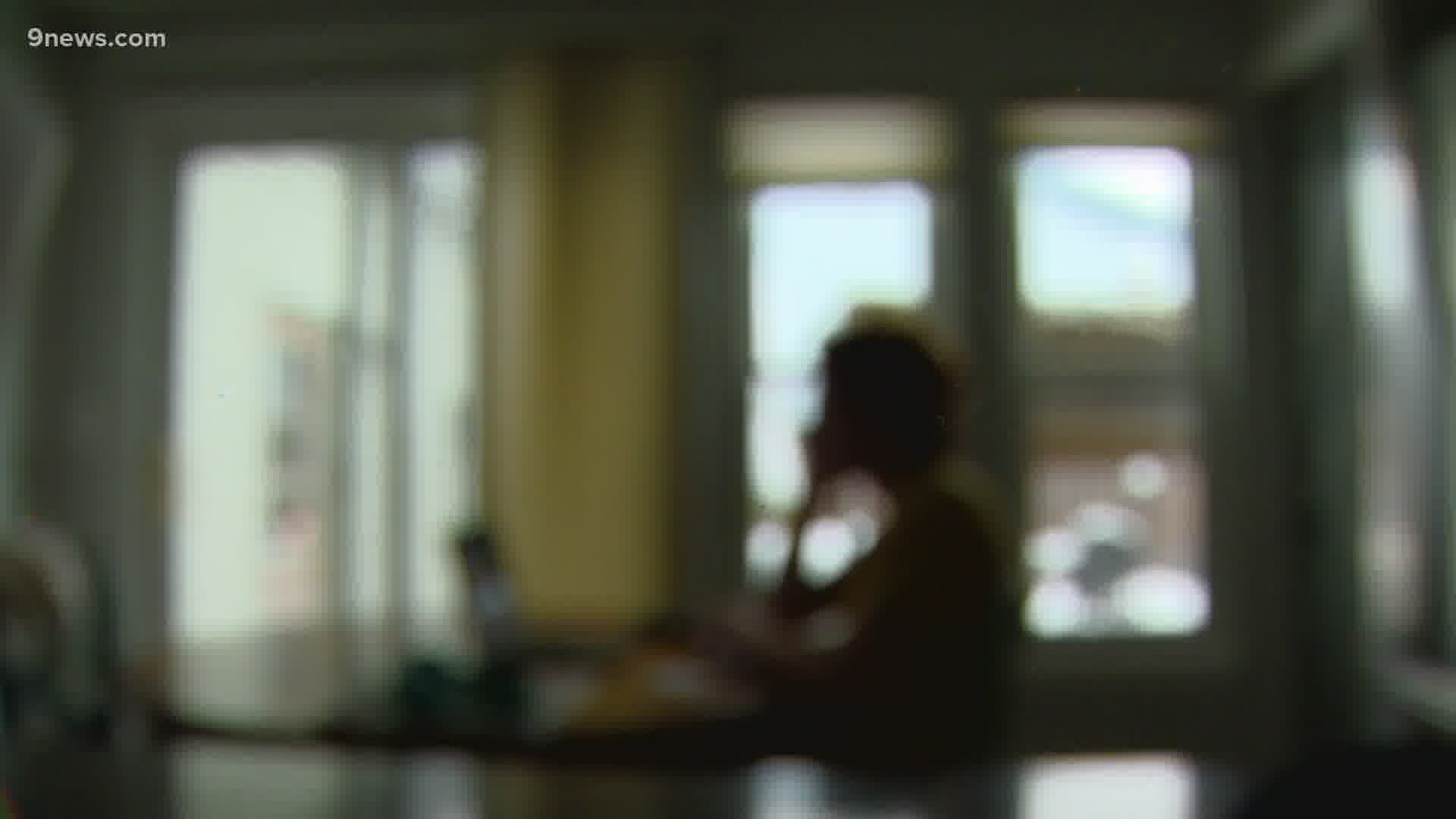AURORA, Colo. — As each day goes by with people staying and working at home, Clinical Psychologist Dr. Mara Kalin said the COVID-19 crisis can wear away at people's mental health.
"One of the most difficult things in this time is that there is such a lack of predictability and a feeling of loss and control that can increase anxiety and depression in anyone," Dr. Kalin said.
She is the chief clinical officer of Aurora Mental Health Center, with walk-in crisis centers still open during social distancing for people who need help going into the second month of staying at home.
"In addition to it being a long period of time, there is no way to know exactly how long this is going to last," Kalin said. "That can make people feel very anxious. It can make people feel panicky. It can lead to a sense of hopelessness about the future."
Aurora Mental Health Center is a community mental health organization that was founded more than 40 years ago.
Kalin talked with 9NEWS Thursday morning about the unseen impacts of COVID-19.
(Editor's note: Responses have been edited for context and clarity.)
9NEWS: What kind of impact is staying at home having on people who were already dealing with mental health issues before the pandemic?
Dr. Kalin: People who are prone to mental health problems, those can be exacerbated when there is increased stress and it's important to remember the things that you do that help to keep you healthy.
Remembering the positive ways that you cope with stress. Remembering to remind yourself and others of the things that we can control.
Are there certain mental health conditions that concern you more while people are ordered to stay at home?
Dr. Kalin: Substance abuse is definitely something that increases and has increased during this time. Many people use substances when they are bored and certainly when they are anxious and overwhelmed as a way to cope.
Things like substance abuse, things like domestic violence, unfortunately; child abuse, when families are spending a lot of time together cooped up in a home where there is more risk of that. Because people feel isolated, they may not know where to reach out for support. But, it's important to remember that social networks are still there. Professionals are still there.
If you a domestic violence victim, professionals like us can help to make sure that there are solid safety plans in place for people during this time.
Traditionally, you help people in person. Is it really feasible to provide services through video chat?
Dr. Kalin: It's actually interesting some people find Zoom sessions to be even more effective. There's a lot of research going on right now about the methods of treatment that are most effective.
There is actually a long history of telehealth services that's been going on well before this crisis. It's certainly been accelerated and expanded quite a bit since the COVID-19 crisis started. But, it can be a very effective method of treatment.
In particular, sometimes it's helpful to get some treatment in the environment where some of the unhealthy triggers are happening.
Do access professionals if that’s something you think you might need or if you’re not sure and want to get a professional sense of whether some outside help might be helpful to you.
Is there a mental health benefit for some people to work from home instead of their previous daily routine?
Dr, Kalin: A lot of us are on the go 24/7 and the COVID-19 crisis has allowed people to slow down a bit and to be able to focus on what's important in life -- being healthy, being connected to family -- not running around all the time and being able to step back and be appreciative about the basic things in life that sometimes we lose sight of because we're on the go so much.
If you need any help, you can call Aurora Mental Health Center at 303-617-2300 or click here for more information.
SUGGESTED VIDEOS: How to Colorado

